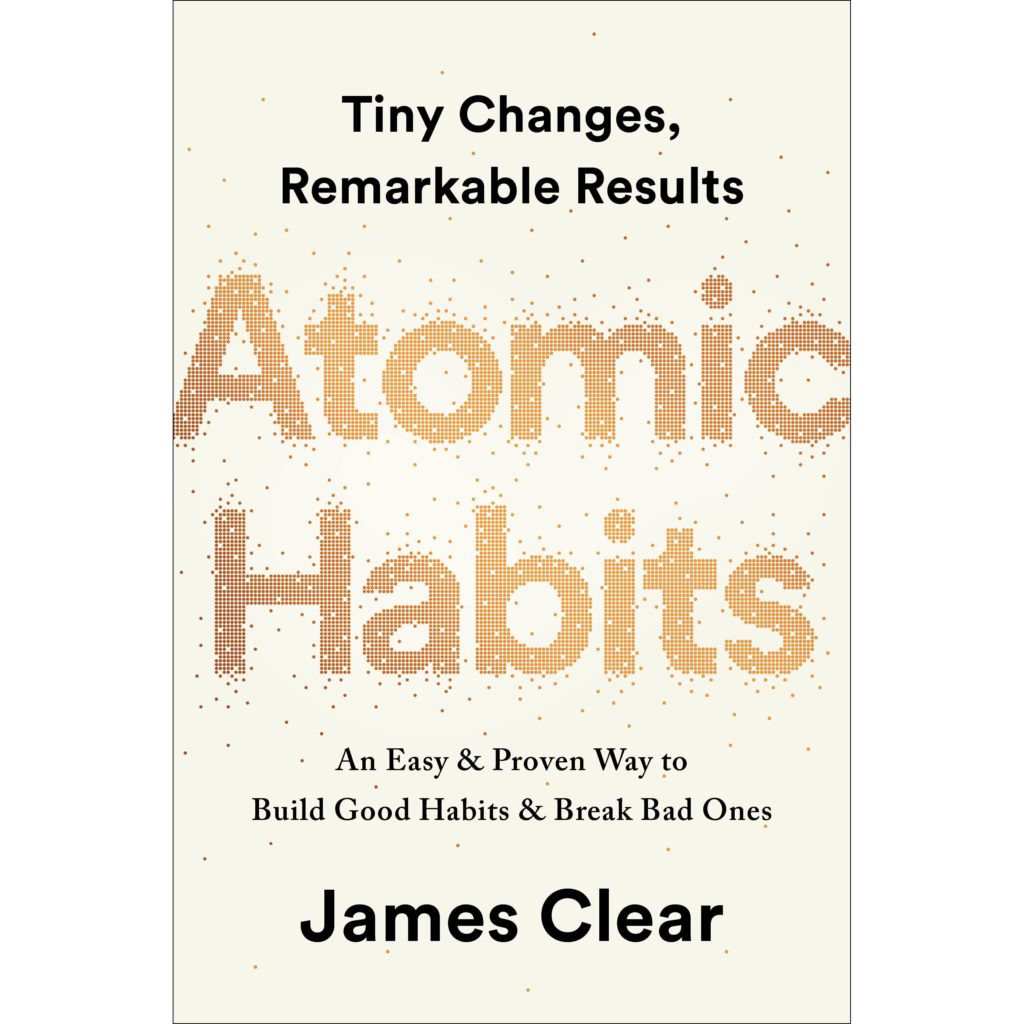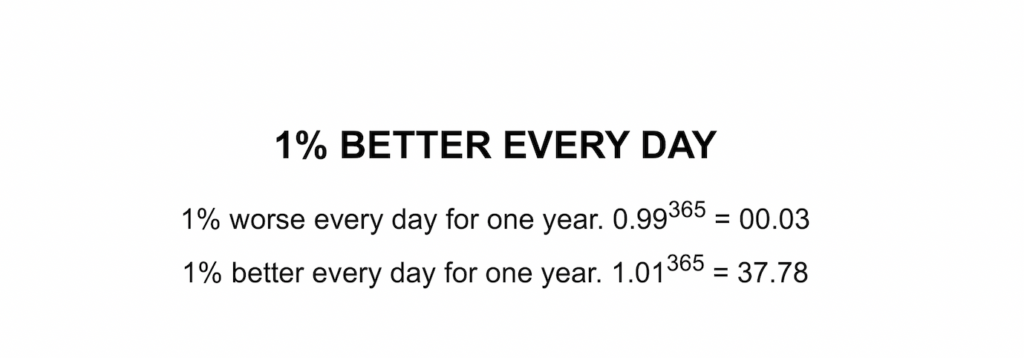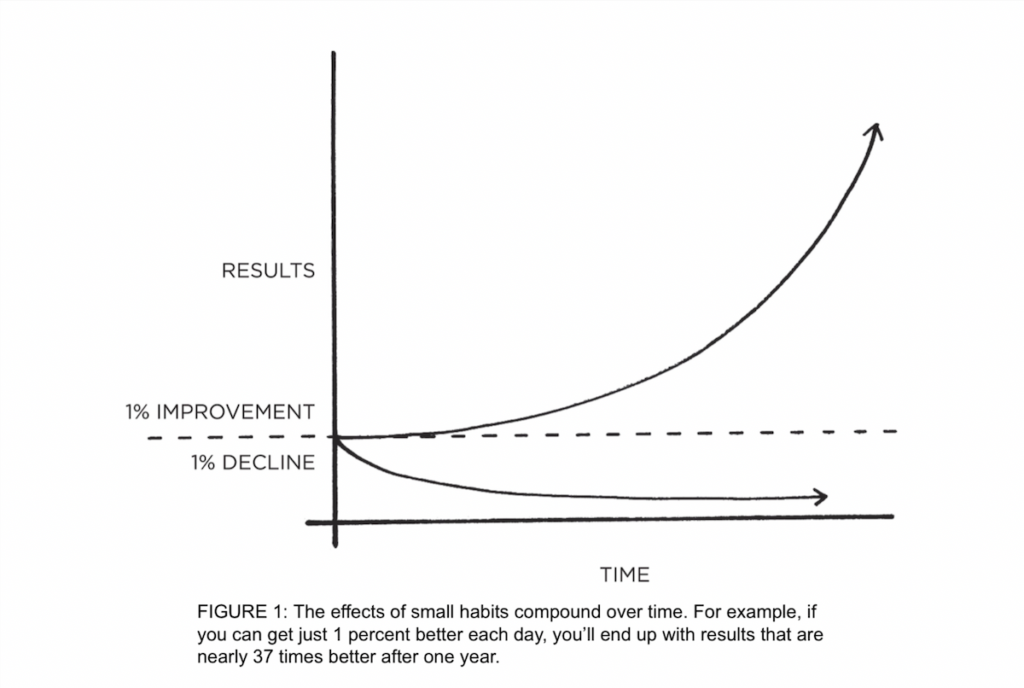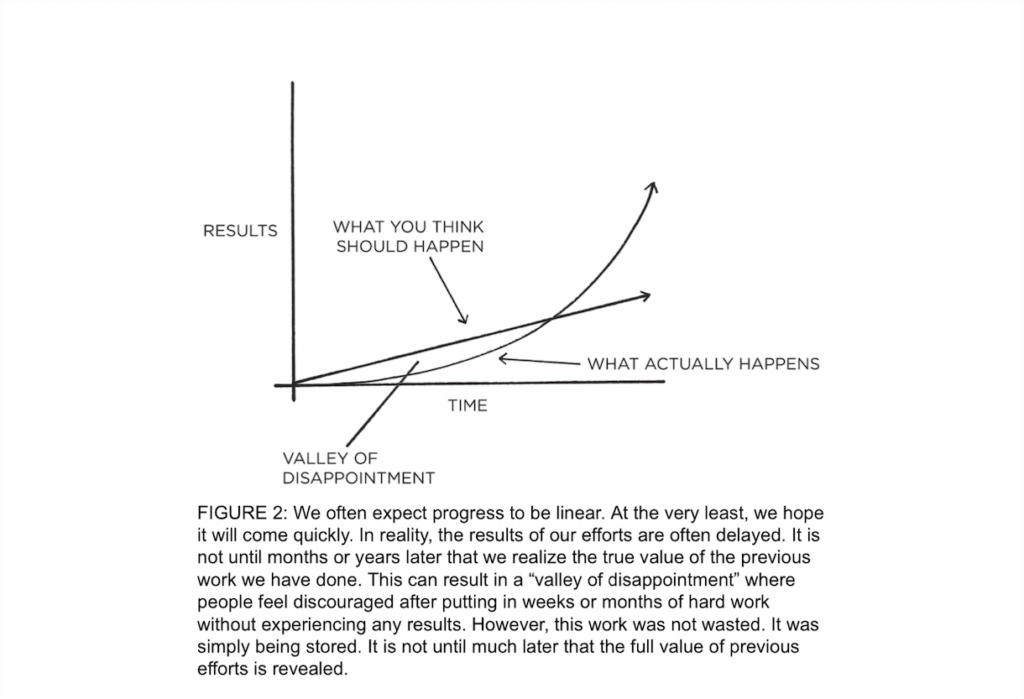
Atomic Habits: Why even bother?

I really can’t emphasize how much I learned from this book. You can tell the author is speaking from experience; the points are very articulate, the examples are very relatable, overall amazing book. My blog posts will in no way do justice to the chapters, I’m just sharing the points that resonated with me. If you liked anything I spoke about, I really recommend you pick up a copy if you can.
If you couldn’t tell from the title, the book is about developing habits to improve the quality and performance of your life. The book is basically an advocate for developing small habits, and makes the great argument that it is small changes that have big effects on our lives.
1% better everyday
One of the first points he makes, he touched on the question I ask myself a lot when adding a small habit to my life: What’s the point? Is it even going to make a difference?
I think humans tend to think macro a lot: when we want to start a new project we mentally list all the things we need to do before we start. If we want to start cleaning we imagine cleaning the entire house, top to bottom. If we want to fix and improve ourselves we buy a bunch of fruits and vegetables, sign up for a gym, buy a book on learning french all at the same time.
Like I noticed for myself it was very rare for me to just pick one thing and be consistent in it…. because, well, what’s the point? It’s so lacklustre and kind of boring, and there’s no way I’m going to get a reward out of it.
He makes a really great point about how a tiny tiny smallest percent better (1%) everyday, may not seem like a lot to me, but if you do the calculations:

One percent better everyday may not mean much for that day, or even that month, but at the end of the year you will be 37 times more skilled.
That’s enough of a push to get anyone going, but what scares me is the opposite: if you look at that graph, one percent worse everyday does add up too. I may seem like I’m just relaxing or taking it easy, but I’m slowly chipping away at myself.

“Winners and losers have the same goals”
I never actually thought about this statement: winners and losers have the same goals. It’s true if you think about it, nobody bets on failing. Like he said in the book, “every olympian wants a gold medal, every candidate wants to get the job” Just because I dreamed of something doesn’t make me unique or worthy of it in any way.
So what makes winners, win? The difference between winners and losers, he says, is the system they choose to operate in. This ties back to small habits. I was thinking, it might not make sense to me to have a bunch of small habits everyday where there’s not really a reward (ie I’m just doing all this work and not getting anything out of it) but once it is time to compete I’ll be more than ready.
A person without a foundation will never be able to be like one with a foundation. Habits are our foundation. You have to fix your inside life before it is able to appear on your outwardly life.
Valley of disappointment
Speaking of lacking reward, the book makes an amazing point regarding this. He says once you start a habit, there is an inevitable process we must go through:

Progress is not linear. There is going to be a period of time where I started, I’m good at it, but I didn’t get any results. “Valley of disappointment” is what he calls it. He says a lot of people end up giving up in this time, not realizing it is simply apart of the journey.
Internalizing this really made a world of a difference. Like he said above, “the work wasn’t wasted, it was simply being stored” Patience!
That’s all from me this week
I recommend when you read this book, you kind of take time in between chapters. It’s packed with so much good, it took time for me to really digest what was being taught.
Hopefully you continue to read with me next Wednesday 🙂

